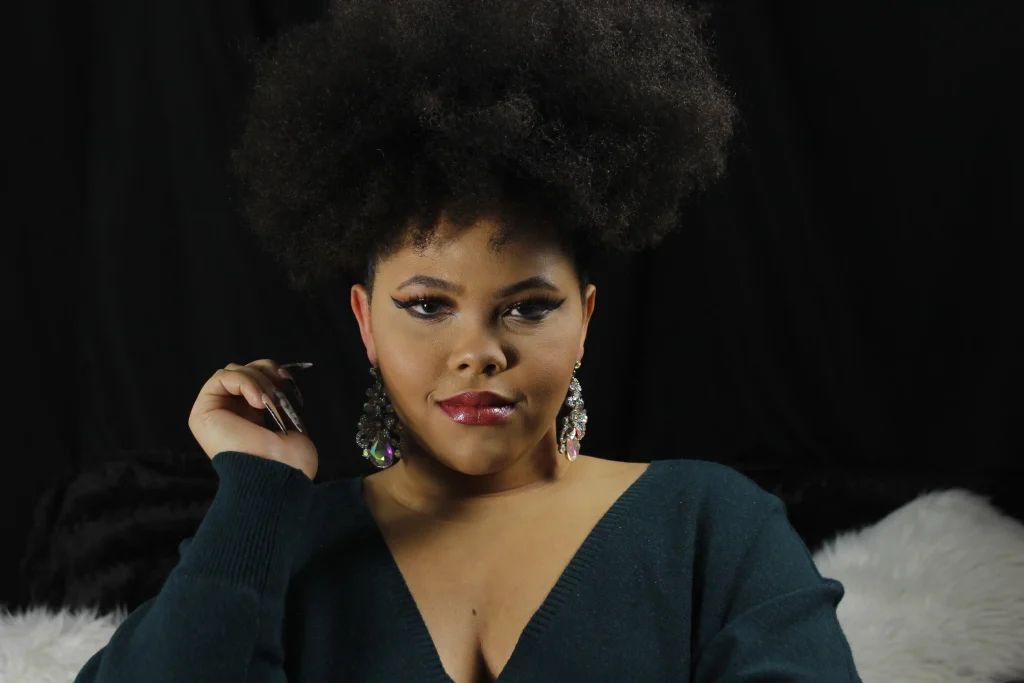As a plus size person, I have struggled with my weight, my shape, and physical health for as long as I can remember. However, it wasn’t until I hit puberty that I saw true fluctuation in my body. I was suddenly bigger in certain spots, wider in the strangest places, and when I looked in the mirror, I couldn’t recognize myself. Truthfully, I felt ugly. When teenagers go through puberty or their growth spurts, it looks different for everyone. The “pretties” get the big boobs and fast metabolisms while others are left with high pitched voices and pimply faces. Since those unfortunate and awkward moments, I have done many things to try and change the way I look. From intense fasting to fad diets, and now having gone vegan, I’ve done it all.
Since I’ve done every diet imaginable: keto, vegetarian, vegan, intermittent fasting, etc., I’ve learned a few things about what it means to “diet” and what it can really look like. A diet is defined as “the kinds of food that a person, animal, or community habitually eats OR a special course of food to which one restricts oneself, either to lose weight or for medical reasons.” If you break down these two definitions, a diet really boils down to two things: habit and restriction. A diet is defined as “the kinds of food that a person, animal, or community habitually eats OR a special course of food to which one restricts oneself, either to lose weight or for medical reasons.” If you break down these two definitions, a diet really boils down to two things: habit and restriction. Throughout my health journey, I’ve had periods where I saw results and periods where I didn’t; if there’s one thing I’ve learned it’s what will and won’t make diets successful. Here are 7 reasons why your diet isn’t working!
1. You don’t want to be on a diet
This may be obvious for some people, but only when I saw the most results did I realize why that particular diet was more effective compared to the others. It was because I wanted to be on the diet. Mentally, I was prepared to change my eating habits and adapt to the restrictions of the diet. Your mind and your body must be equal for any major life change to work. If it’s not you will subconsciously self-sabotage by giving in to ‘cheat days’, or taking breaks from the gym for ‘self-care’. There is progress in balance.
2. The diet isn’t fit for your needs
Everybody and every body is different. We are all built with different DNA, meaning our body processes will not be the same. The problem with fad diets is that they quickly gain popularity before any real research can be done on them. Usually it is a result of celebrities or influencers sharing tips that are tailored to their personal needs, while their fans take it and run. In this instance, nutritionists are extremely important. Consult a nutritionist, doctor, or personal trainer (anyone who is specifically certified) to help you develop a meal and exercise plan fit for your needs!
3. Lack of resources
It costs money to be healthy. Organic groceries and produce, supplements, and gym memberships can quickly become extremely expensive. Unfortunately, we do not live in a world where health care and healthy living is accessible for everyone. So, if you are not seeing the results you want or you have to finesse your health journey without all the bells and whistles, don’t be discouraged. It’s more political than you think.

4. Time
There are only 24 hours in a day. Between work or school, eating, sleeping, showering, commuting, and whatever else you’re responsible for in the during the day, there isn’t much time to exercise or meal prep. Even if you’re a prioritizing wizard, maybe you just only have room in your schedule to hit the gym a few times a week. And that’s ok. You won’t NOT see results, it just takes a little more time.
5. Unrealistic Expectations
Many people who want to lose weight want to lose it fast. You’ll see many fad diets that promise results in weeks and guarantee crazy amounts of weight loss. THIS IS UNREALISTIC. THAT IS UNNATURAL. IT IS NOT POSSIBLE. At least not in a healthy manner. The problem with this current societal standards, is that people expect Maximum Rewards with Minimum Effort. It could take at least 8 months to a year before you will see any serious, physical changes in your body. You may notice small differences within 3 or 4 months, although this varies from person to person. But no, you’re not going to lose half of your body weight within 2 weeks simply by changing the way you eat.
6. Social Eating
Eating, in a social sense, has always been an intrinsic aspect of many cultures. It is a way to spend time with family and friends, to relieve stress, to engage, to socialize, to meet people, etcetera. However, it is not always necessary. Even when we’re on diets we may feel like we have to forgo or skip days just for a social standard. And then your friends or family aren’t on a diet, so they pick restaurants you can’t necessarily eat at, but you do so anyway out of obligation. To optimize the effectiveness of your diet, try spending time with friends and family outside of food settings. Or invite them over for a home-cooked meal that fits your needs.
7. Boredom
If you’re anything like me, then you probably start to feel a little snackish when you’re bored. It may not even be a conscious thought as you’ve probably tricked your mind into thinking boredom equates to hunger. It’s important to maintain discipline and awareness when dieting. In the past, I’ve often fell off a diet due to snacking or too many cheat days. You may also get bored of eating the same foods. Even with meal prepping or specialized diets, take the time to research a few meals that may be outside of your comfort zone. Diet food can be different and delicious!
Just remember to take dieting and your health journey in general at your own pace. If something doesn’t work, CHANGE IT! Like I mentioned before, everybody and every body is different, so It’s okay to adjust things to work for you. If you have any other tips or diet experience share them in the comments below. Happy dieting!!







